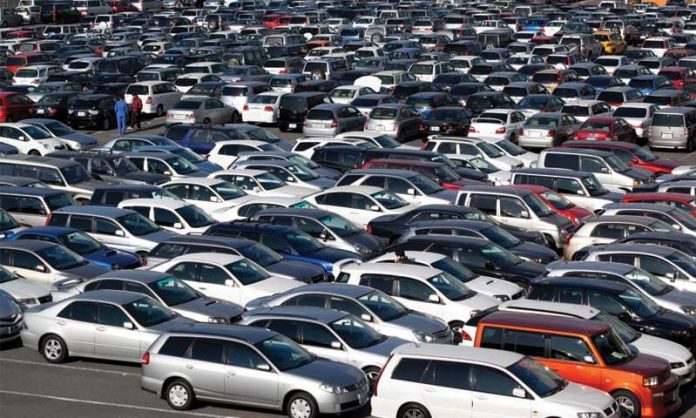KARACHI: Nissan Motor Corporation Senior Vice President Peyman Kargar says that Pakistan has a good balance of imported, used, and locally manufactured cars at the moment because customers were given a limited choice by the existing players.
“Consumers must have a choice as there are a few players. Moreover, each of them is manufacturing just one or two products (in a given engine size),” said Kargar, who is also Regional Chairman in charge of Nissan’s operation in Africa, Middle East, and South Asia, while exclusively speaking to Pakistan Today.
In the aftermath of the Auto Development Policy 2016-21, Ghandhara Nissan has partnered with Nissan Motor Company and would be launching Datsun cars in the next one year by 2019. This partnership will see Rs4.5 billion, approximately $41 million in investment in the next four years, which is said to create over 1,800 jobs.
The capacity, after the up-gradation of Ghandhara Nissan’s production facility here at Port Qasim under this new partnership, will be 32,000 units. Apart from Nissan, Kia and Hyundai will also be making it to Pakistani markets after having partnered with Lucky and Nishat Group respectively.
According to Ghandhara Nissan CEO Ahmed Kuli Khan Khattak, the capacity would be increased with another phase of investment of Rs1.5 to Rs2 billion if needed. Khattak said this after officially announcing Ghandhara Nissan and Nissan Motors Company partnership here at a local hotel on Wednesday.
Meanwhile, Peyman Kargar added that the restriction on imported used cars (cars used more than three years cannot be imported) is a good regulation to restrict flooding the market at the expense of the local industry.
“As far as local industry is not ready to provide cars to customers at par to the demand and to their satisfaction, import of used cars is fine (at a level),” he said.
“There should be authorised import of used cars but there should be a level too. It is a sensitive balance,” he said. He added that the countries where import of used cars was not maintained, their local industry was in a mess.
Kargar further said that Pakistan’s automotive industry is growing and there’s even more potential in the industry. The market size is expected to grow to 300,000 units from the present demand of 200,000 new units in the next four years.
Answering to a query that Pakistan has a big demand for low engine size cars, Kargar said that it might be true at the moment but Nissan expects Pakistan’s auto industry to evolve.
He further said that Pakistani customers deserve the same cars as customers of other parts of the world do. He said that the customers would move to other and better vehicles as they have a choice and say goodbye to the previous one.
He further said that Nissan would not be compromising on quality if current supplier of parts in Pakistan fails to deliver. They would not buy parts from them anymore and nurture new quality parts’ suppliers.
Kargar further said that Nissan would be making differentiation for itself in the Pakistani market with quality products, competitive prices and negligible delivery periods.
He added that by providing cars in time, it will prompt other industry players to do the same.
Nissan is a global full-line vehicle manufacturer that sells more than 60 models under the Nissan, INFINITI and Datsun brands. In the fiscal year 2016, the company sold 5.63 million vehicles globally, generating revenues of 11.72 trillion yen. In the fiscal year 2017, the company embarked on Nissan M.O.V.E. to 2022, a six-year plan targeting a 30 per cent increase in annualised revenues to 16.5 trillion yen by the end of fiscal 2022.
Nissan has a global workforce of 247,500 and has been partnered with French manufacturer Renault since 1999. In 2016, Nissan acquired a 34 per cent stake in Mitsubishi Motors. Renault-Nissan-Mitsubishi is the world’s largest automotive partnership, with a combined sales of more than 10.6 million vehicles in the calendar year 2017.



































